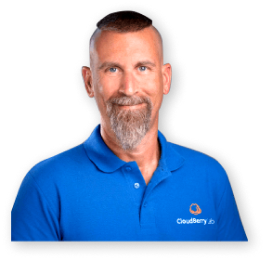Guest: Ross Whitmore
Company: Northern Technology Services
Ross Whitmore is running his MSP up in a resort town in Michigan. While the area is small, he’s still managed to carve out a nice niche for himself in providing MSP services for local businesses including hospitality and retail. Ross has love technology his entire life and decided a few years ago to give it a try on his own. Ross has a great spirit and a real focus on his customers which he feels is lacking in some of the bigger MSP shops. Through some partnerships with other providers, he’s been able to grow his business and keep his customers happy.
Watch on YouTube
Doug: Hello and welcome to MSP Voice. This is episode #38. Got a great interview coming up for you here in just a few minutes with Ross Whitmore up in northern Michigan.
Running a one-man show up there in a small town but he’s doing some really great things and he’s got a lot of great perspective in terms of if you’re looking to do something similar yourself, so definitely stick around for the interview.
Quick update this week. No ‘Best of Reddit’. It’s been a crazy weekend and I’m off to the airport here in just a little bit for a conference. But again mspvoice.com is your source for all things MSP Voice.
We do have our webinar series for Nerdio posted on there so definitely check that out. Nerdio is doing some really, really cool things with Azure. So if you’re thinking about using Azure for some of your customers, you don’t know where to start, Nerdio has a complete set-up, soup to nuts, to get you going. Definitely check them out, some really cool stuff. The webinar goes into detail, including a demo, so check that out on mspvoice.com. I mentioned I’m going to be off on a conference this week.
I will be at the greatest IT sales and marketing show on Earth, according to Robin Robins. It’s the Robin Robin seminar, ITMarketingToolKit.com. I will be there all week, so if you’re listening to this and you’re there, stop by the CloudBerry booth and say ‘Hi!’. I’d love to meet you. And with that, as I said, it’s going to be a quick update, because I’ve got to get up to the airport. Have a great week and I’ll talk to you next week. Thank you.
MSP Voice Podcast
Doug: Hello and welcome. Today I am joined by Ross Whitmore with Northern Technology Solutions? Did I get that right?
Ross: Services, but you’re close.
Doug: Services! Solutions, services – very, very close, right? Ross, why don’t you give us a little info about yourself and tell us what you do?
Ross: Well, essentially, I built this firm up back in 2015, now coming into the fourth year. The focus is ideally MSP-based, you know, managed services. It started out as kind of a break/fix mix. Small area, a resort town – a lot of hospitality industry up here – and just kind of moved over to the MSP. Thankfully, great partnerships, with the biggest goal of just trying to find a good, affordable solution for the smaller businesses that I feel get missed a little bit by some of the bigger organizations out there, you know?
Doug: Yeah.
Ross: It’s nothing against them, it’s just that some of the smaller mom and pop shops, you know, they need help too.
Doug: Yeah.
Ross: That’s kind of where I came in and tried to fill that niche with my MSP offerings and my solutions.
Doug: OK. You said you started about four years ago. Did you have a career in IT first? Did you work for another MSP? What was your goal? Or were you selling used cars before you started your MSP?
Ross: Well, it’s actually a very interesting story and I love telling this to people. So it all started when I broke a computer back when I was about 12. The DSL and the LimeWire days, which I’m sure you’re familiar with. So I had to get it fixed. I had to get it taken care of, back in order or I was going to be in big trouble. It was all in the computer. And that’s kind of when that bug hit me. Always been kind of the self-starter, entrepreneur aspect. Then move around, as it progressed. I love breaking things and figuring out how to fix them and then that just kind of kept going and going, and then more technology got involved and I became kind of ‘that guy’. “Hey wait! This isn’t going on. Go find Ross, he’s going to take care of this.” And then from there, it was always a side thing. I was never sure. And then in 2015, I decided, “You know what? I like this. I want to do this for …” I am one of those guys, honestly. I learned in the mud. I learned by doing it on a daily basis. I actually don’t technically have a formal education behind me but thankfully …
Doug: Nothing wrong with that.
Ross: … with partnerships and things like that, I learn it. So in 2015, I said I’m going to do this, I was actually working in HVAC wholesale, ironically. So I certainly did the DBA and then I just said, “You know what? I like this. I like what I’m doing. I like working with the people I’m working with.” I love my … my customers are like my family. I love that and I love when I get an email that says, “You’re the greatest. This is awesome. This works perfectly for me.” And I took it and I ran with it. It took about six months of actually doing it full-time, break/fix. Then that’s when I got Karl Palachuk’s book there. And then I read that and then looked around at some of the other organizations that are in my area. We get a lot of the bigger ones that came up from downstate and kind of transplanted up here. And I just said, “You know, there’s a niche. I see it. I see a need. I want to try to fill it.” And since then, I’ve just been slowly growing and slowly filling that niche.
Doug: Great. Yeah, I know that … you mentioned a minute ago, and then also I noticed it on your website, that you do focus some on retail and hospitality. A lot of MSPs I talk to, it’s like, “Oh no! Don’t touch retail, don’t touch hospitality!” So you said that it’s because of where you’re located, that it’s a good opportunity for you?
Ross: Yeah, a lot of its location. I’m in a vacation tourist town. So about eight months out of the year, it’s crazy. And everybody is there shopping, they’re buying gifts. Lots of restaurants, things like that. And one of the things I did is I allied myself with another local organization which does point of sale, credit card processing. So we kind of feed off of each other, which works out really good and just kind of help and make sure that these merchants are out there getting what they need. They’re not … I hate seeing, you know, they go someplace like a big box store, the guy sells them everything underneath the sun. And it doesn’t really fit what they need.
Doug: So they need somebody to go out and help them on a day-to-day basis.
Ross: So it’s kind of worked out from there. I love my retail stores. I love my merchants. I mean they are some of my greatest customers. I work with also a lot of non-profits and that smaller organization with two to five members, kind of thing. And then a lot of like smaller legal firms and things like that.
Doug: And then I guess one of the other questions and you said you partner with someone who does the credit cards, so do you have to worry about PCI yourself? Is that something you have to be certified in or do you let that other company handle that?
Ross: I do do some PCI stuff. I’ve got a couple of merchants that actually they’ve got such a good deal right now through their current provider that it just can’t be touched. And those merchants, they’ve got some PCI stuff so I do do the PCI compliance for them. Trustwave is one of them out there. That’s a big one I see a lot of with TSYS accounts. But most of our stuff, you know, we use Rebel, Lightspeed. And all of that is encrypted right there in the machine, right there at the terminal, which is nice because that PCI compliance checklist is literally ten little checkmarks, because we’ve got everything encrypted right here and we’re not doing a bunch of pass-through and nobody’s saving credit card information and things like that.
Doug: That’s great. So when it comes to getting new business, are you out there advertising or are you doing word of mouth? Is it through relationships? What’s the …? How are you getting the new business?
Ross: It’s a mix. Pretty much everything over the last four years has been word of mouth, referral. Lately, I’ve changed that a little bit. And you know, I kind of like to be outside the box. My favorite story is the time I was at a chamber of commerce event and I walk up to a guy at the bar and I introduce myself. He says, “What do you do?” I say, “I’m in IT.” And he says, “How are you holding a conversation with me right now if you’re an IT guy?” I like to break the stereotype a little bit. You know, I do a lot of Facebook, Facebook Live, to bring a little bit of that kind of entertainment and just think outside what people know, what people are used to, because when most people think ‘IT provider’, they’re picturing a guy like me huddled in a corner someplace, probably in a dark room tapping away on a keyboard and blocking out for Russia.
Doug: So word of mouth is obviously the best way and I know a lot of MSPs sometimes struggle with the advertising and those types of things. But if you can continue to grow your business based on word of mouth and some limited advertising where you’re not blowing up the budget buying Adwords, with billboards and placemats and all this other stuff. So it’s good.
Ross: You know, I probably burned hundreds of dollars that first year on Adwords, on Facebook ads. And that return on investment compared to just walking into a door or picking up a phone or just saying, “Hey. Do you know anybody that could use this?” is night and day, I found, comparable because everybody’s doing Facebook ads. Nowadays, when I scroll through Facebook, as soon as I see something that looks like an ad, I immediately go right by it. I don’t stop and read it. If I’m not stopping to read it, I don’t think anybody else is going to stop and read it either.
Doug: And that’s the thing. Ads are annoying but if you can get someone to like your page because you’re putting up good content, they see it and they engage with you, that’s obviously much better than just trying to do pop-ups or ads or whatever all over the place. Content is king.
Ross: It is. That’s what I’ve been finding. That’s what all my studies … You know, I work with a guy, he does SEO stuff and things like that for me, and that’s what it’s boiled down to. The more stuff … If you don’t have it, get an Instagram page. Host some cool videos. You know you don’t have to post videos – “Oh, look at this network rack!” I did one where it was Frosty the Snowman hitching a ride to Georgia and got a bunch of hits on that and all that did was build up … yeah, sure, it was Frosty the Snowman but all these people … My brand is attached to that and now they’re seeing that and now you’re putting that brand in front of more people and that puts you outside of that average perspective.
Doug: Definitely. So you obviously kind of jumped into MSP, right? You made a decision, “Hey, I’m going to jump in and do this.” You’ve got a few years in now. What kind of advice do you have for someone who is thinking about taking a leap as you did? Or maybe just getting started?
Ross: Research as much as you can right off the bat. It hasn’t been until probably about the last year when I finally got it fine-tuned. Finally settled into a good RMM solution, figured out what my offering is, finding the right back-up providers and things like that as well, and just what you want to do. When I first started this, I did everything. You name it if it had to do with technology, jump up and take care of it. Now, this is what I do; this is what my company does.
Doug: It’s always good to define exactly what it is you do, especially if you’re offering a managed service, to say this is what my managed service is, right? Here you can see it on paper. This is what I do.
Ross: Yeah, exactly. And figuring it out, like, I jumped through. Pulseway first started coming out at that time. I jumped through from them and jumped from them to Continuum. And now I’m currently with Autotask, Datto, whatever you want to call them, and just getting that research in and getting the right tools, get connected with a forum, like the IT Business Owners forum for things like … Chris Wiser’s group there on Facebook and just reaching out and connecting to the community. And learn. Learn as much as you can. Do not do it on the fly, because it’s scary. There are nights where I didn’t sleep but I made it through.
Doug: You know, when you’re starting your own business there is going to be sleepless nights and there’s going to be some stressful days for sure but you’ll come out on the other side and everything’s going good, then great. You mentioned the MSP community. You mentioned a couple of Facebook groups, the IT Business Owners group, Chris Wiser’s IT and MSP Business Owners group, I think is what it’s called. Now, do you also do Reddit or even the MSP sub-Reddit, at all?
Ross: You know, I’m young and I actually just started finding out about Reddit about a year or so ago, which is really ironic, because I’m the epitome of a millennial. I’ve been doing a little bit more. I will say I haven’t checked out too much of Reddit it but, if you’re looking for something, there’s been a couple of times where I’ve been stumped with, like, error codes and things like that, you know, and event logs and that’s great because that’s what’s popping up – Reddit. That seems to be a completely just expanding community and a coming together and chiming in and helping people out, which is nice.
Doug: One of my roles, when I was brought in, was to help engage with the community and build community and that’s why this podcast was born. Based on my previous career, I did a lot of community work. It was everyone’s … and Twitter and some other places and now with the MSP, there are Facebook groups, there’s Reddit, there’s a Slack channel, there’s a Discord group, server, and so there’s just a lot going on in terms of where people hang out. I’m not going to say it’s disjointed but people hang out where they’re comfortable and wherever they find the answers and where they make good connections, relationships.
Ross: I mean, for me, it was a matter of, probably, not even an hour and I think I’m in probably eight different groups now on Facebook.
Doug: There’s a lot of them.
Ross: And it’s great. You can post and there’s usually somebody who can come back and say either they’ve done it before or they can point you in the right direction at least.
Doug: So, thinking back, and now that you’re in it, what is the best part of being in managed services and doing what you do?
Ross: I think the best part is essentially when I get a day where I show up and I go to a chamber event or something like that and I’ll have a customer where I might not have heard from in a while. It might have been a month since the last ticket came in or the last phone call came in. But when we sit and talk and they just thank me, they’re just … because they can do their job. They can focus on their business and they don’t have to worry about their printer burst into flames or … my favorite is when Charter – because we’ve got Charter internet up here – and now let’s just say that with any internet provider it’s always a fun game. I had one where I got a call, it was about 6:00 in the morning. I called, got them to show up and stopped in to check on them when the technicians were there and they said, “Wow! I can’t believe you got three technicians to show up and look at this.” You know, if you can get three trucks rolling in from the cable provider.
Doug: That’s right. That’s good.
Ross: I wish it didn’t have to be that way but at least you’ve got somebody’s attention.
Doug: Yeah, definitely. So that’s the best part. What’s the worst part? What are some of the things … not that you hate but that you kind of dread every once in a while?
Ross: You know, being for the most part a one-man shop … I do have some subcontractors I work with and some partner one-man shops, the hardest thing is time off, being able to shut it down, from not only just the business owner aspect but also the support. At the end of the day, for me to not think about marketing, not think about budgeting or not think about a client’s marketing/budgeting needs. With trying to just take a break. That’s honestly by far, I think, one of the hardest things. My laptop goes with me everywhere. If my laptop’s not with me, I got my iPad or I got my iPhone. You know, I tell people, when you submit a ticket, the whole world starts digging at me. And it’s true that everything digs at me but, as much as I love it and sometimes it’s kind of exciting when you get that alert and you’re like, “OK. Wait a minute. What’s going on? OK, I’ve got to get to the bottom of it.” Well then, you know, when that alert happens and it’s a holiday weekend … You know, we have this big holiday open house that happens in the wintertime, right around Christmas. And it’s at one of my restaurants. Well, they went down and it was about nine o’clock and the whole of downtown is just packed. Everybody is in the streets, they’ve got them all blocked off and he’s probably got 300 people in his restaurant. A mess. And I’ve got to drop what I’m doing on a Friday night and leave all my friends and go, “I got to take care of this guy real quick.” I mean, it feels good but I will say it’s not for the weak, not for the weak-hearted. You have to put in the work. You can’t sit back and think it’s a recurring income or any of that stuff. No, it’s … you’ve got to be in it. You’ve got to work in it. There are times where I can bring in a part-time help or something like that in the summer and I can get a little bit of a break but don’t ever think you can just sit back.
Doug: But I guess, obviously, being a young company yourself and then getting started, the other part is do you have the growth plans, where you see yourself maybe in another three to four years having staff full-time and employing people? Or are you happy being owner/operator and that’s how you see it? It’s just a curiosity. You don’t have to answer if you don’t want to but I’m just curious.
Ross: I do see the growth plans. I’ve hired a couple of people throughout each summer. But it seems like they only last a couple of months before I’ve got to tell them to go. But you know I guess for me, though … and this comes from the things that I see at least in the area … it seems to be when the companies that get to that growth and they step back and, from what I see around me, they bring in 10 sales guys and 10 technicians, that customer focus seems to a little bit. And a lot of my customers I’ve picked up from some of these other organizations – that’s what they tell me. They say, “You know, they got this big and I feel like they don’t care about me anymore.” And for me, I don’t ever want to hear in 5-10 years that, “Oh, Ross and Northern Technology Services got so big that we want to go someplace else because I feel like he doesn’t care about me.” You know, that personal touch and letting them know that I’m right here with you and I’m by your side. I feel that that’s lacking in a lot of industries and especially as companies get bigger and that’s also a big downfall. And, that I will probably forever at least be hands-on until I can finally get somebody who has that same passion, and finding that passion. When I brought in some college students to work in the summer, they don’t have that … finding that passion, seeing that passion.
Doug: To them, it’s a summer job. It’s a paycheck so they can go out drinking on the weekend, right?
Ross: So if you want to hang out here, you know, you’ve got to be passionate about. You’ve got to be involved.
Doug: Yeah, I definitely agree. Switch gears a little bit. Thinking about technology, the technology landscape as it is today and what you’ve seen about what’s coming up, what technologies are you most excited about? What things are … either what you’re working on now or things on the horizon … it doesn’t have to be related to MSP. What are you excited about in technology?
Ross: That’s a rough one. You know, I think one of the biggest things is the VR stuff. A lot of this virtual reality coming through, I think that’s just amazing. I was at a chamber expo and I actually had one of the boat salesmen there. They had a PlayStation set up with the PlayStation VR. Then they had a recording where you jump on like a little ski rope and you put the headset on and so you actually kind of got to see what it’s like to be behind the boat, hanging on.
Doug: Oh, cool!
Ross: And seeing more of that kind of things put out there and being able to see more of that experience. I mean, the fact that we’re at where we are now with virtual reality is just crazy. I look forward to seeing more of it. I mean, I’ve been using the iPhone X. They’ve got some of the new stuff built in. The first thing I did was to download the IKEA app and tour around with their augmentation. I mean, I’ve even gone so far as doing a wiring scope-out with the measuring tape with my phone. I love seeing more and more of those kinds of advancements. Because that kind of stuff helps make everything easier. And it’s being able to see and experience things, the fact that I can see what it’s like to be behind a boat being pulled on a rope, like, “OK, that’s kind of cool!” You know, they had a thing that rocked with it and everything. And I was like, “Wow! All right!”.
Doug: That sounds like fun.
Ross: I tried it once. I fell immediately into the water. It was much better in virtual reality.
Doug: And you didn’t get wet, right?
Ross: Exactly!
Doug: So that’s what you’re kind of excited about. What technologies do worry you? Where do you … you know, things that maybe keep you up a little bit at night?
Ross: Honestly, it’s really been cyber-threat stuff. Especially in small businesses. My clientele base, it is that smaller business and the stuff that I’ve seen with IPS and so forth is just nuts. I mean I’ve traced stuff back to Moscow. I’ve traced … there was a SIP attack at a law firm I work with where I traced that back to France. And just seeing more and more of these out there and seeing these new tricks and how sneaky it’s becoming. You know, phishing is a lot more deceiving now than it used to be. I look at some of these headers in 365 and I just kind of go, “Oh, wait a minute! I really have to dig through this to figure out where this came from.”
Doug: Well, you know, I get my electric bill, right? I don’t click on the thing to pay the bill. I go to the website for the electric company and type it in. It’s just … who knows what it could be? They can very easily put up a front and make it look like the electric company. I log in, they get my credentials. Not that anyone’s going to steal my electric but, you know, there’s just things like that that I make myself aware of. Don’t click the link in the e-mail. When you get the bill, go to the website, type it in yourself.
Ross: And yeah, it’s like I tell a lot of my clients and everybody, it’s not so much that it’s some guy in a basement someplace any more and this is just so automated and algorithms that just reach out, find your IP address and start trying stuff.
Doug: Yeah. Did you see the MSP attack that made the rounds a couple of weeks ago?
Ross: No, I didn’t see a recent one. There was another one?
Doug: Well it was … if you were using the on-prem Kaseya and ConnectWise and there was a connector …
Ross: Oh, yes, I did read about that. Yes.
Doug: Yes and that was pretty bad. I think it hit multiple MSPs and then, for them, it hit every one of their customers and that’s … you know. Love RMM and what it does and how it makes the job easier. But at the same time, it’s a connection to every PC at every one of your customers and they can get into there and they know that, right? They know that if they can get into … if they can attack MSPs, get into their systems, then they can branch out. Now they’re hitting 50, 70, 150 companies.
Ross: Yeah, that’s scary, especially because it is hitting more MSPs. That was that Chinese hacker group, I think?
Doug: Yeah. And there was a notice back in October about it and everything, so hopefully people are paying attention.
Ross: I hope so too. I prefer to practice what I preach. I remember right when I flipped the switch on two-factor. Yeah, I hated it about as much as everybody else does but, you know what? It’s one of those things that you have to do.
Doug: Yup, definitely agree. All right, so it is now time for the rapid-fire round. Are you ready? It’s easy. I already know the answer to the first one. So, just a real quick answer. Don’t think about it too much. Ready?
Ross: OK.
Doug: All right. Apple or Android?
Ross: Apple.
Doug: I knew that one. Mac, Linux or Windows?
Ross: Mac.
Doug: OK. Amazon or Azure or something else?
Ross: Something else.
Doug: OK. Local back-ups, cloud or both?
Ross: Both.
Doug: OK. Should you always virtualize?
Ross: It depends.
Doug: It usually does.
Ross: Yeah, that one really depends.
Doug: And then finally, which is worse – printer support or vendor cold calls?
Ross; Vendor cold calls.
Doug: OK. You did break/fix so I thought maybe you’d go for printer support there, but …
Ross: No, usually I tell everybody to rip it out and put in an HP or something – put in something that’s actually user-friendly.
Doug: So on the cloud question, you said ‘something else’. Do you have a lot of customers utilizing cloud services for other than back-up and DR?
Ross: You know, most of it … almost everything cloud, I guess, is 365. But with most of my base, cloud back-up. I know one of the tools does use an AWS back end but the other thing is Wasabi. I’ve got to say I love those guys. I love their pricing … is very, very friendly. I mean, especially because when I go to people and I see them or they come in and they show me a price. And they’re, like, “These guys want $300 or $400 dollars a month for 500-gig data back-up.” They can’t afford it. It’s plain and simple. Not everybody, not every business can afford that but they need some sort of solution. So coming in with … especially, like Wasabi hold their own and then I do have some VVSs out there but I use a couple of other services for those. One I just found recently which is kind of nice is Bolter which is pretty easy to spin up a virtual server on that one, which is kind of nice.
Doug Cool. Well great. It’s been a lot of fun. Before we go, any last words of advice for listeners out there? Any great knowledge you want to impart?
Ross: Always think about your customer and put yourself in their shoes as much as possible. And definitely reach out to other IT providers, reach out to other MSPs and just be willing and open to learning new things. Don’t think you know it all, because that’s going to get you in trouble. If you have a question, find somebody and ask it and don’t let yourself get put in a situation where it turns out you don’t have the answer. That’s one thing I think that I had to learn myself – not to let my ego take the wheel a little bit and definitely take the ego out of the equation, no matter what your title is.
Doug: Ross, it has been great. I really appreciate you coming on and sharing your experiences with us.
Ross: I appreciate you having me. And you know this was a great experience and I look forward to continuing to listen to the podcast and watch the videos.
Doug: All right. Thanks a lot and hopefully I’ll meet you in person one of these days.
Ross: Sounds great. Thank you.
Doug: Thanks.
 Don’t Miss New Episode!
Don’t Miss New Episode!










